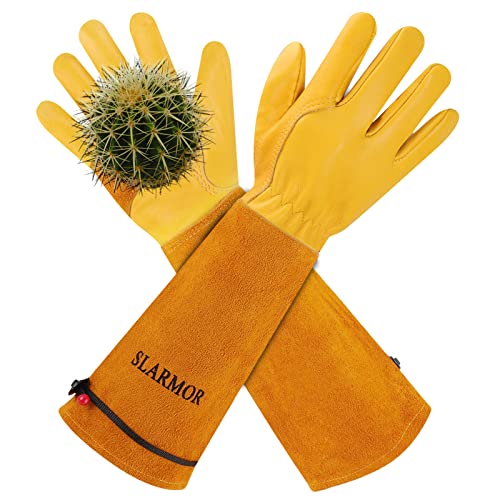I found these thornproof gloves really do protect against spikey plants in my garden
Spikey roses and blackberries met their match with these thornproof gloves

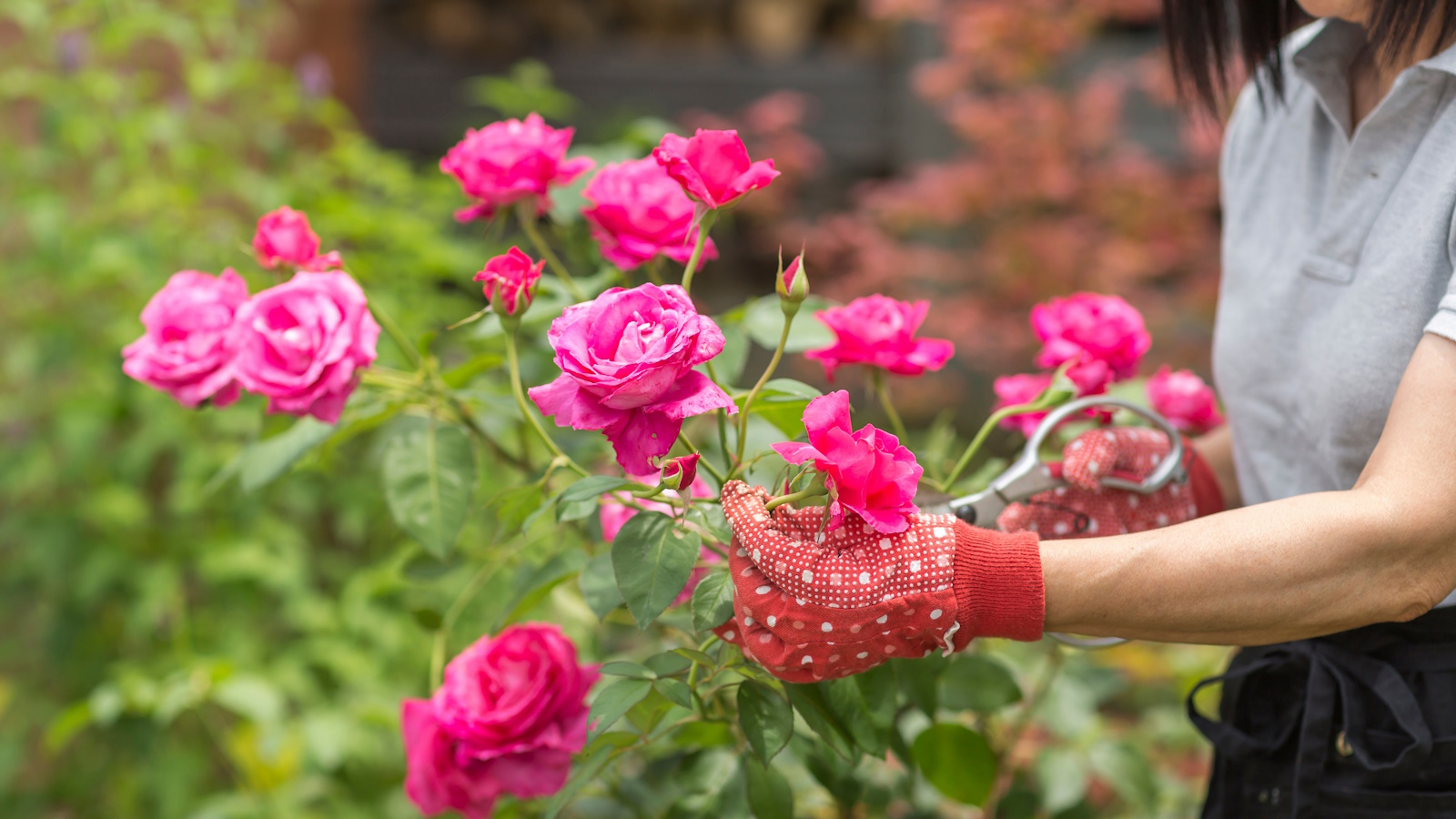
Design expertise in your inbox – from inspiring decorating ideas and beautiful celebrity homes to practical gardening advice and shopping round-ups.
You are now subscribed
Your newsletter sign-up was successful
Want to add more newsletters?

Twice a week
Homes&Gardens
The ultimate interior design resource from the world's leading experts - discover inspiring decorating ideas, color scheming know-how, garden inspiration and shopping expertise.

Once a week
In The Loop from Next In Design
Members of the Next in Design Circle will receive In the Loop, our weekly email filled with trade news, names to know and spotlight moments. Together we’re building a brighter design future.

Twice a week
Cucina
Whether you’re passionate about hosting exquisite dinners, experimenting with culinary trends, or perfecting your kitchen's design with timeless elegance and innovative functionality, this newsletter is here to inspire
Thornproof gardening gloves are a must if you have thorny plants in your backyard. Plants like roses, pyracantha, barberry, berberis, bougainvillaea, and more, can all give you a nasty nip, which is why a good pair of thornproof gloves should be an essential part of your gardening kit.
Strong, durable, thornproof gardening gloves with elbow-length gauntlets can protect your hands and forearms from scratches. You can head out confidently, whether to prune, plant, weed, or feed, to tackle some of the toughest thorns you can find in a backyard.
After years of tough usage, my gloves ended up worse for wear so I tried a pair of Slarmor thornproof gardening gloves, available at Amazon, and found them strong, comfortable, and up to the challenge of the thorny plants in my garden.
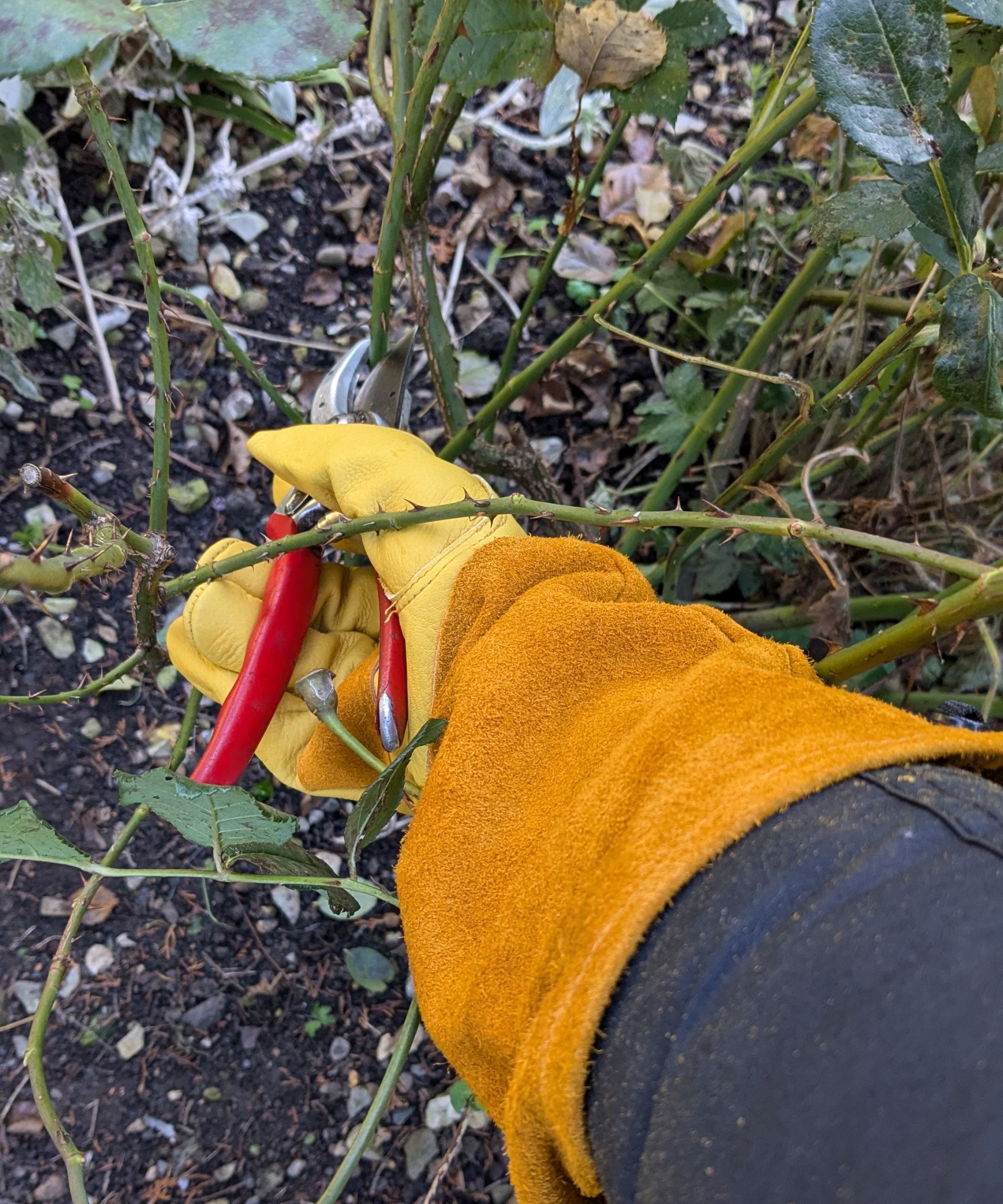
I could easily prune wearing thornproof gardening gloves
Any gardening gloves should be comfortable and durable, enabling you to do tasks properly and without obstruction. These leather gloves - of which I got a size large - fitted comfortably and gave me full movement in my fingers. That is important, as you can easily prune, plant, weed, or pick up branches. The gloves are breathable for long-term use, especially ideal on warmer days, and come with an adjustable cuff to secure them.
So they feel good, but how do they deal with thorns? I don’t have a wealth of thorny plants in my small urban back garden, but, in roses and blackberries, I have two common plants that bear thorns. In the case of the roses, they are desirable and carefully planted and maintained, however, the blackberries are a prickly intruder that comes in from neighbouring properties.
Thornproof gardening gloves are essential when pruning both. I have tried cutting both roses and blackberries without such protection and, while it is doable, it is frustrating and can be rather painful, so I would not recommend it.
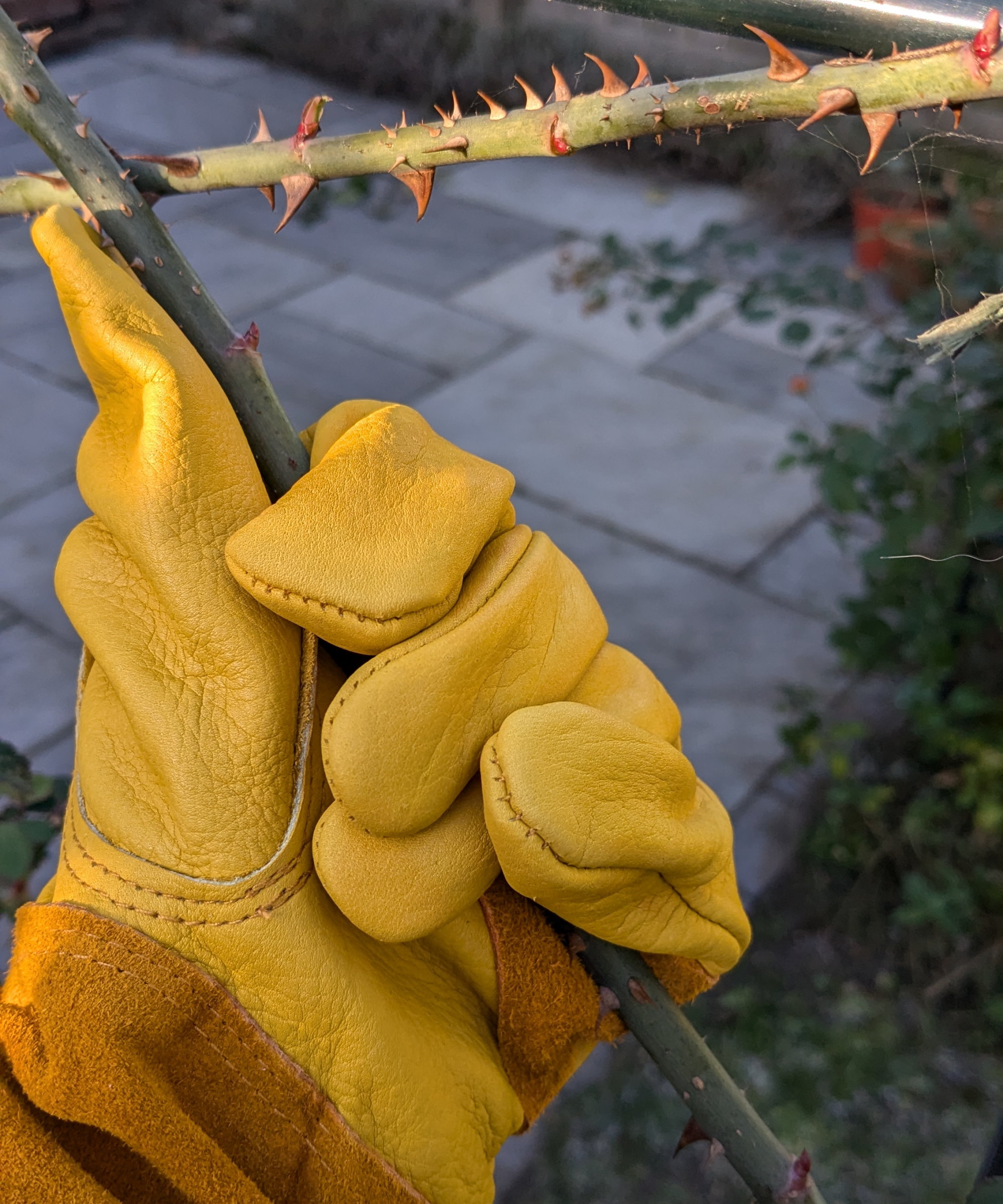
My hands were protected from a spikey climbing rose
It was not the ideal time of year for full pruning of roses, neither the shrub roses nor the climbing roses, but to try the gloves out I did gently cut back the shrub roses to prevent wind rock. The gloves perfectly protected my hands and arms while pruning and their flexibility meant I had no issue using my pruning shears - I used the always trusty Felco F2s that we recommend as the best pruners you can get - to cut as required.
Design expertise in your inbox – from inspiring decorating ideas and beautiful celebrity homes to practical gardening advice and shopping round-ups.
The elbow-length gauntlets meant I could reach into the center of the shrub without the thorns scratching my arms or catching on the material of my clothes. You can get thorn-proof gardening sleeves to protect forearms but finding a good pair of long thorn-proof gardening gloves like these removes the need for two different sets of protective equipment.
To further test the protection offered by these puncture-proof gardening gloves I gripped the thorniest climbing rose I have in my garden. Thankfully, the gloves offered adequate protection against the thorns and my hands were left unscathed.
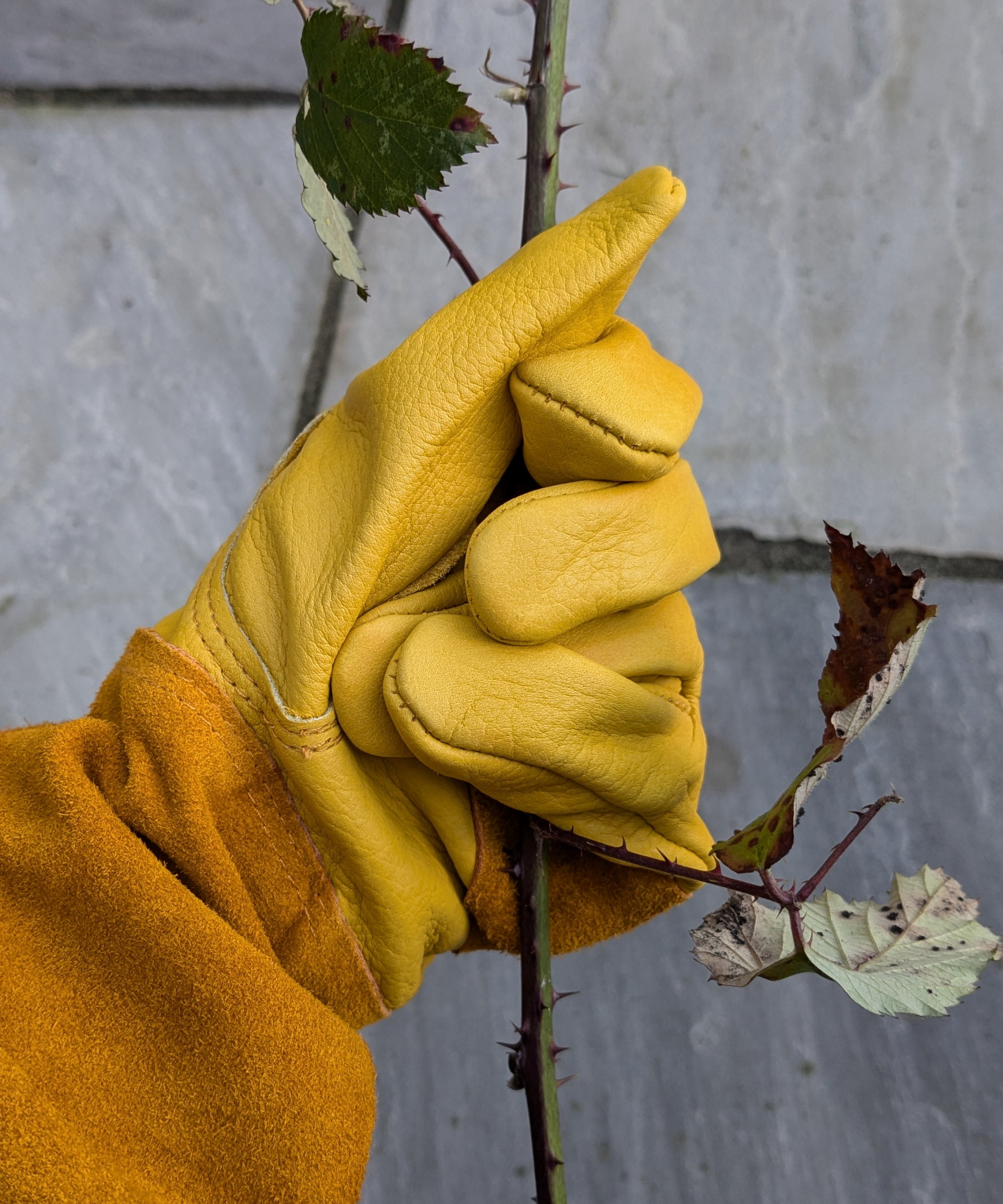
I could grip the spikey stems of blackberries wearing these gloves
It was the same when cutting back the blackberries. My hands were safe from thorns and scratches and I could grip the spikey stems without fear of getting pricked. As brambles can grow very long, having full elbow-length protection was reassuring when cutting and handling them to get rid of them into my green waste.
The gloves gripped the tools well during use and the spikey plant material when disposing of my trimmings. If you look at the reviews online, the gloves are commonly cited for their quality and protection against thorns and spikes among the thousands of positive reviews. I am confident these gloves can offer protection while maintaining many thorny backyard plants.
There are certainly positives to these thornproof gardening gloves but also some potential drawbacks. As they are made from cowhide leather, they are not vegan and it will undoubtedly discourage some buyers looking for thornproof gloves.
When you look through the customer reviews, there are mentions of incidents where thinner and longer spikes from cactus and milk thistle penetrated the gloves. It does mean that, while they could cope with the thorns I tested them on, extra care may need to be taken with other particularly spikey plants.
Finally, the gloves will not come with any warranty from Amazon. If they do get holes or tears, the only option will be to get a replacement pair.
There are other strong options for thornproof gardening gloves on the market. For example, I also tried out the CoolJob thornproof gardening gloves on the same plants.
The gloves proved puncture-resistant against both the roses and blackberries and were comfortable to wear. The only issue I found was that the extra-long cuff was made of a much more rigid material which didn’t flex or bend much in the wrist and arm. It offered protection against scratches but wasn’t as comfortable.
They are still a high-level pair of puncture-proof gardening gloves that will offer protection against thorny plants.
These thornproof gardening gloves are made of soft and flexible material, featuring a cushion on the palm for extra thorn protection. The extra-long cuff protects from scratches and has an elasticated wrist to prevent the gloves from slipping off.
We at H&G want to help improve your pruning experience. As well as the right gloves to protect your hands and arms, see our guide to some essential pruning tools recommended by experienced gardeners. These gardening tools and accessories are strong, and dependable and can help make any pruning tasks easier.

Drew has worked as a writer since 2008 and was also a professional gardener for many years. As a trained horticulturist, he worked in prestigious historic gardens, including Hanbury Hall and the world-famous Hidcote Manor Garden. He also spent time as a specialist kitchen gardener at Soho Farmhouse and Netherby Hall, where he grew vegetables, fruit, herbs, and cut flowers for restaurants. Drew has written for numerous print and online publications and is an allotment holder and garden blogger. He is shortlisted for the Digital Gardening Writer of the Year at the 2025 Garden Media Guild Awards.
